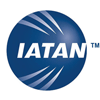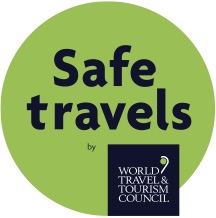Please see below for general information regarding your safari experience. Should you have any additional questions, please do not hesitate to contact us.
Can I be reached when on safari in a remote area?
Yes, even very remote camps have radio communication and messages from home can be passed on to you. Some of them can be reached by cell phone/internet.
Is there electricity in the lodges and can I charge my camera batteries?
This depends on the type of accommodation you book. Some lodges run generators and some have solar power whilst some mobile camps have only oil lanterns. You will always be able to charge your camera battery though, if not in camp then by car charger (you would need to bring a car charger for your particular device).
Most camps in Southern Africa have 220V plug points. You are advised to bring converters (if applicable) and adapters.
Is it possible to visit a village and interact with locals?
Depending on the location of the camp, some of them offer organized village and school visits. Even in rural areas, younger people will speak English in addition to their local language. Also, most staff in camps come from neighboring villages and are happy to chat with you.
What travel documents do I need?
You will need a passport that is valid beyond 6 months from the date of your start of the trip and it must have at least 4 empty pages in the “visa” section of your passport.
Visa requirements can change and we will assist you with this information at the time or you can check at the specific consulates for requirements.
Do I need to get vaccinated?
Many areas in Africa do have malaria and it is the client’s responsibility to take the appropriate malaria prophylaxis as advised by your physician.
Make sure you are up-to-date on routine vaccines before every trip. These vaccines include measles-mumps-rubella (MMR) vaccine, diphtheria-tetanus-pertussis vaccine, varicella (chickenpox) vaccine, polio vaccine, and your yearly flu shot. Depending on your destination, your travel clinic might also recommend Hepatitis A, Meningococcal meningitis, Rabies, Typhoid. Please consult with your travel clinic (www.passporthealthusa.com) or http://wwwnc.cdc.gov/travel/
Please note that travel to and from Zambia requires a Yellow Fever Certification.
Please be sure to pack any prescription drugs you need for the duration of your trip in your hand luggage.
Which company can organise by visas for me: visahq.net
Where can I compare travel insurance from different companies: www.squaremouth.com
Where can I store luggage that I do not need on safari but like to bring to other destinations?
Johannesburg OR Tambo airport has a luggage storage facility that is convenient from the arrival hall and economical (price per pound).
What should I pack for my safari?
Please note if your safari includes transport on small aircraft your limit for your safari is typically 44 pounds, including your hand luggage and camera gear. This must be packed into soft duffel bags without frames or rollers to fit into the small loading compartments of these aircraft. Please note that your camps have free laundry service to help you accomplish your limited weight allowance.
The weather in Southern Africa is generally pleasant throughout the year – warm to hot days and cool to warm nights, with summer (September to April) being the hottest months. During the winter (May to August) it can get quite cold at night and in the early morning, especially when on safari in an open vehicle. Although most operators provide blankets on vehicles it is recommended to bring warm hat, gloves, and jacket.
– Sun hat with wide brim
– Head scarf/bandana (for dusty regions )
– T- shirts (not tanks which do not protect your neck and shoulders from the sun)
– Long sleeve “safari” style shirts to protect your arms from the sun
– Long trousers – ideally ones that zip off legs during warmer lunch hours
– Pajamas, light weight for summer and warm/thermal for winter
– Underwear
– Socks
– Sneakers for game walks
– Flat Sandals
– Swimming Costume
– Lightweight jersey or fleece for summer and warmer jacket for winter
– Scarf, gloves and beanies, woolen hat for winter
– Rain poncho
– Formal attire for your stay at nice city hotels if applicable
Equipment/Other
– Good quality sunglasses with UV protection
– For contact lens wearers, we recommend to bring along a pair of glasses in case your eyes get irritated with dust.
– Lip balm
– Suntan lotion with higher SPF than what you are used to. African sun is strong.
– Moisturizing Cream
– Torch or headlamp with spare batteries
– Converter and adapter if needed (southern Africa has 220V)
– Personal toiletries (basic amenities are provided at most camps), female hygiene products
– Malaria prophylaxis if visiting areas with malaria
– Prescription medication sufficient for the duration of your trip (pack in hand luggage only)
– Insect repellent
– Antihistamine tablets if you suffer from allergies
– Basic medical kit (aspirins, band aids, Imodium, antiseptic cream, antihistamine cream, ect.)
– Tissues/wet wipes
– Visas, tickets, passports, money, credit cards, insurance details
– Camera equipment including spare batteries, chargers, SD cards with high capacity storage GB, memory sticks, waterproof/dust proof bag for your camera.
– Zoom lens for better close-up pictures of animals (can be rented online for the duration of your trip)
– Dust blower for camera lenses (especially if you like to change lenses)
– We highly recommend that you bring your own pair of binoculars for viewing wild life and birds. Recommended specifications are 8×40 or 10×42
– Bird guide book if you are a bird watcher although your safari guide will help you with identification
NOTE: Bright colors and white are not advisable on safari as they stick out from the surroundings and announce you to the animals from far away. Camouflage clothing is not recommended in African countries.
Reference books are available at most lodges for your convenience and do not need to be brought along.
The day starts as dawn breaks over the African bushveld. Although each safari will be slightly different with some of them spending the whole day in the bush with a picnic, generally the following is a guidance of what to expect.
After your early morning wakeup call and quick coffee/tea/snack, you depart in your open landrover with your experienced rangers who will share their extensive knowledge of the bush with you. These drives are undertaken at times best suited for game viewing which vary depending on the season but typically start early morning. Where applicable you may be invited out of the vehicle to see tracks, examine certain plants and follow spoor.
After an exhilarating hunt for tracks to see what the animals have been up to during the night, and tracking down whatever you find, you will stop somewhere out in the bush for a break of coffee & tea. In winter, guests are kept warm on the vehicle with warm blankets.
A hearty breakfast or brunch is served after returning from your morning game drive.
Some lodges, where allowed, also offer walks which allow guests a better chance to see some of the smaller creatures of the bush as well as an opportunity to learn more about the flora and fauna of the region & to have a chance to follow tracks in more detail. Trackers will enthrall you with their explanations of the medicinal and other uses of the numerous plants and trees along with tales of traditional folklore.
Spend the heat of the day by the pool or on your porch observing any animals that might wander into camp. Late lunch or afternoon tea is followed by the afternoon game drive that extends into the evening to view seldom seen nocturnal species by torchlight as you head back to camp. Once again, your afternoon game drive is broken up in a scenic spot where you will watch the sun set whilst enjoying a sun downer drink with snacks. Where permitted, some game drives continue after dark using spot lights to search for nocturnal wildlife.
Upon returning for dinner, either in the boma, bush or lodge – guests can socialize around the campfire or lounge before returning to bed for another day’s adventure.
Fly-camping explained!
Often combined with a walking safari, a fly camp is a simple remote camp, located some distance from your main safari camp. Typically, you’d leave camp in the late afternoon, and do an hour or so’s walk, ending up in your fly camp. There’s a real satisfaction to be felt in walking, rather than driving, between camps and more often than not you’ll be rewarded with cool drink at the other end. The set up of a fly camp varies, depending on the site and time of year, but you’ll usually sleep in a small dome tent, or gauze mosquito net cube, in a simple bed roll. There’s generally a simple, clean, short-drop loo and a bucket shower, with a fire to sit around, and a table open to the skies. After your night’s sleep out, you’ll eat breakfast around the campfire, before walking out of camp and on to your next adventure.
This is the ultimate opportunity to reconnect with the wilderness, and for those who try it, it’s often a highlight of their safari. It is pretty wild- you’ll use a short-drop loo, and the sounds of the animals are very much right there – so fly camping is not for everyone.
Reservation and Payment Procedures:
1. Reservation: A reservation is only accepted and becomes definite when Adventure To Africa has confirmed the booking in writing by sending a Reservation Confirmation and 20% deposit has been received by Adventure To Africa.
2.) Payment: A 20% *non-refundable deposit is required at the point of reservation. The balance of all moneys in respect of the booking must be paid at least 60 days prior to departure date. The amount due will be specified on the invoice. If full payment is not received by the final payment date, your reservation is considered cancelled, the deposit will be forfeited and any cancellation fees will be charged. If the booking is made within 60 days of departure, full payment is required with the reservation.
* Trips that include gorilla permits require a 20% deposit plus the full cost for the primate permits due to payment requirement by National Parks at time of reservation.
3.) Deposits are accepted by money wire or credit card. Balance payments are accepted by money wire, no credit card payment.
4.) Group Booking Reservations, Payment and Cancellation Procedures are advised in the Group Booking Offers and are not part of standard Adventure To Africa procedures.
Payment procedures:
By wire: Please contact us for wire info
Due to limited accommodations at the lodges/camps we reserve the right to automatically cancel your reservation should payment not be received by the due date. Unused portions of package are non-refundable. Please refer to terms & conditions.
Cancellation Policy:
Cancellations must be done in writing and the date Adventure To Africa receives the cancellation is regarded as the date of cancellation.
Cancellation fee of 100% applies within 60 days of trip departure.
Cancellations by Adventure To Africa:
Adventure To Africa reserves the right to cancel trips that are below the trip minimum for certain programs as mentioned in program. In the event of trip cancellation, client shall be notified as soon as appropriate but no later than 60 days before trip departure to receive a full refund of the deposit. Adventure To Africa shall not be responsible for any additional expenses incurred by client such as purchase of air tickets, passport, visa and medical fees.
Handling Fees or Discounts:
Please note that payment procedures may incur discounts or handling fees as noted with pricing details.
The following are links to various websites that you might find useful in preparation for your adventure.
Visa Services: visahq.net
Center for Disease Control: www.cdc.gov/travel (recommended vaccines)
Bring items for locals that need them: www.packforapurpose.com
Currency Converter: www.xe.com
Weather forecast: www.weather.com
International Travel Clinic: www.passporthealthusa.com
Note: Adventure to Africa does not take responsibility for the contents of the websites listed herein.
Travel Insurance Options from Travelguard – click on the banner:
Travel Insurance Options from Alliance:
More choices:
 English
English Deutsch
Deutsch











